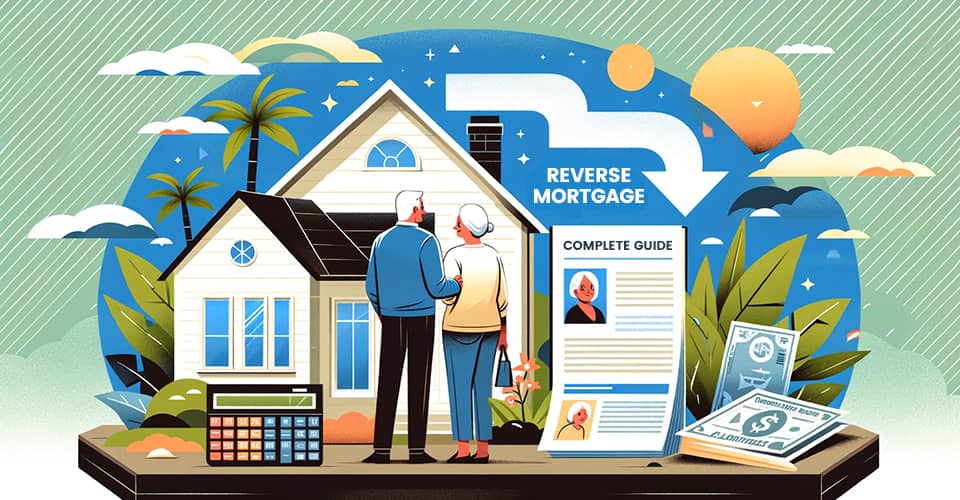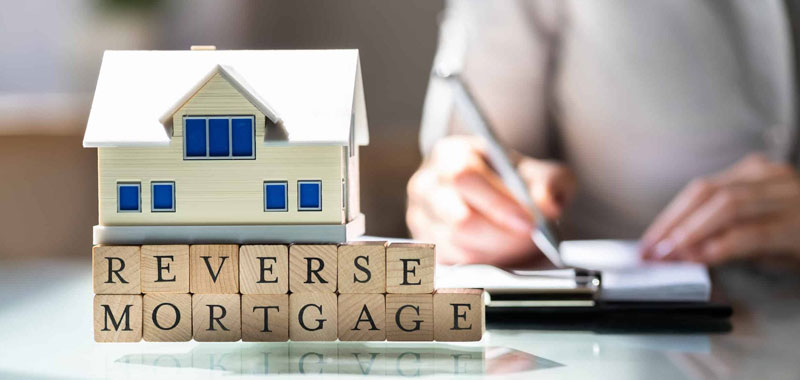Unlock Financial Flexibility: Your Overview to Acquiring a Reverse Home Mortgage
Understanding the ins and outs of reverse mortgages is necessary for home owners aged 62 and older looking for financial flexibility. This unique economic instrument allows seniors to take advantage of their home equity, changing it into easily accessible cash for different demands, from healthcare to way of life improvements. However, browsing the qualification expenses, standards, and benefits can be complex. As you consider this alternative, it is important to comprehend not only how it works but likewise the implications it may have on your monetary future. What are the crucial variables you should consider before making such an impactful decision?
What Is a Reverse Mortgage?

The essential appeal of a reverse home loan lies in its possible to enhance economic versatility throughout retirement. Home owners can utilize the funds for numerous functions, consisting of medical costs, home enhancements, or daily living prices, thus giving a safety internet during an important stage of life.
It is vital to recognize that while a reverse mortgage enables for raised capital, it likewise lowers the equity in the home over time. As rate of interest collects on the outstanding car loan equilibrium, it is essential for potential customers to meticulously consider their long-term financial plans. Consulting with a reverse mortgage or a monetary consultant professional can give valuable insights into whether this option aligns with an individual's monetary objectives and conditions.
Qualification Needs
Recognizing the qualification needs for a reverse home mortgage is essential for homeowners considering this economic alternative. To certify, candidates need to go to least 62 years old, as this age criterion allows seniors to accessibility home equity without month-to-month home mortgage repayments. Furthermore, the property owner should occupy the residence as their key house, which can include single-family homes, certain condominiums, and made homes satisfying certain guidelines.
Equity in the home is another essential need; house owners normally need to have a significant quantity of equity, which can be figured out with an appraisal. The quantity of equity offered will directly affect the reverse home loan amount. In addition, candidates should demonstrate the capacity to preserve the home, consisting of covering real estate tax, house owners insurance coverage, and maintenance prices, guaranteeing the residential or commercial property continues to be in great condition.
In addition, prospective customers have to undergo an economic assessment to examine their income, credit scores background, and general economic situation. This evaluation helps loan providers determine the applicant's capacity to meet recurring obligations associated with the residential or commercial property. Fulfilling these requirements is vital for securing a reverse home loan and making certain a smooth financial transition.
Advantages of Reverse Home Mortgages
Numerous benefits make reverse mortgages an attractive choice for elders looking to improve their monetary adaptability. purchase reverse mortgage. Among the key benefits is the ability to convert home equity into cash without the need for regular monthly home mortgage here settlements. This attribute permits seniors to gain access to funds for different requirements, such as medical costs, home enhancements, or daily living expenses, therefore relieving financial tension
Furthermore, reverse mortgages offer a security net; seniors can remain to reside in their homes for as long as they satisfy the loan requirements, fostering stability during retirement. The proceeds from a reverse mortgage can also be used to postpone Social Safety and security advantages, potentially leading to greater payouts later.
Additionally, reverse home loans are non-recourse lendings, implying that customers will never owe greater than the home's worth at the time of sale, securing them and their heirs from financial obligation. Last but not least, the funds obtained from a reverse home mortgage are usually tax-free, adding an additional layer of monetary alleviation. In general, these advantages position reverse home mortgages as a useful remedy for seniors seeking to boost their financial scenario while maintaining their cherished home environment.

Fees and prices Included
When taking into consideration a reverse home loan, it's important to understand the different prices and fees that can impact the general monetary image. Understanding these costs is vital for making an educated decision about whether this monetary item is ideal for you.
Among the key costs connected with a reverse mortgage is the origination fee, which can vary by loan provider however normally varies from 0.5% to 2% of the home's evaluated worth. In addition, homeowners should anticipate closing costs, which may include title insurance coverage, evaluation charges, and debt record costs, commonly totaling up to numerous thousand bucks.
An additional substantial expenditure is home loan insurance coverage premiums (MIP), which safeguard the loan provider against losses. This fee is generally 2% of the home's worth at closing, with a recurring yearly costs of 0.5% of the remaining lending balance.
Last but not least, it's vital to take into consideration continuous expenses, such as real estate tax, property owner's insurance, and upkeep, as the debtor stays in charge of these expenditures. you could try here By meticulously examining these expenses and fees, homeowners can much better examine the monetary implications of seeking a reverse home loan.
Actions to Get Going
Beginning with a reverse home mortgage involves a number of key actions that can help enhance the process and ensure you make educated decisions. Examine your financial circumstance and establish if a reverse home loan straightens with your long-term objectives. This consists of evaluating your home equity, present financial debts, and the requirement for added revenue.
Next, research study numerous lenders and their offerings. Try to find reliable organizations with favorable testimonials, transparent charge frameworks, and affordable interest rates. It's necessary to compare terms to locate the ideal fit for your needs.
After choosing a loan provider, you'll require to finish a detailed application process, which usually needs documents of revenue, properties, and property details. Engage in a counseling session with a HUD-approved counselor, who will certainly supply understandings right into the effects and duties of a reverse mortgage.
Conclusion
In conclusion, reverse mortgages present a practical choice for senior citizens looking for to improve their monetary stability throughout retired life. By transforming home equity right into accessible funds, house owners aged 62 and older can resolve various monetary requirements without the stress of month-to-month repayments. Comprehending the details of qualification, benefits, and linked prices is crucial for making educated decisions. Mindful consideration and planning can bring about improved lifestyle, making sure that retired life years are both secure and meeting.
Understanding the intricacies of reverse home mortgages is necessary for homeowners aged 62 and older looking for financial freedom.A reverse home mortgage is a monetary product designed largely for homeowners aged 62 and older, permitting them to convert a section of their home equity right into cash - purchase reverse mortgage. Consulting with a reverse home loan or an economic advisor specialist can give valuable understandings into whether this alternative lines up with a person's economic objectives and situations
In addition, reverse home loans are non-recourse finances, meaning that customers will never ever owe more than the home's worth at the time of sale, safeguarding them and their heirs from monetary obligation. Overall, these benefits position reverse mortgages as a sensible solution for seniors seeking to improve their try this web-site financial scenario while preserving their treasured home setting.